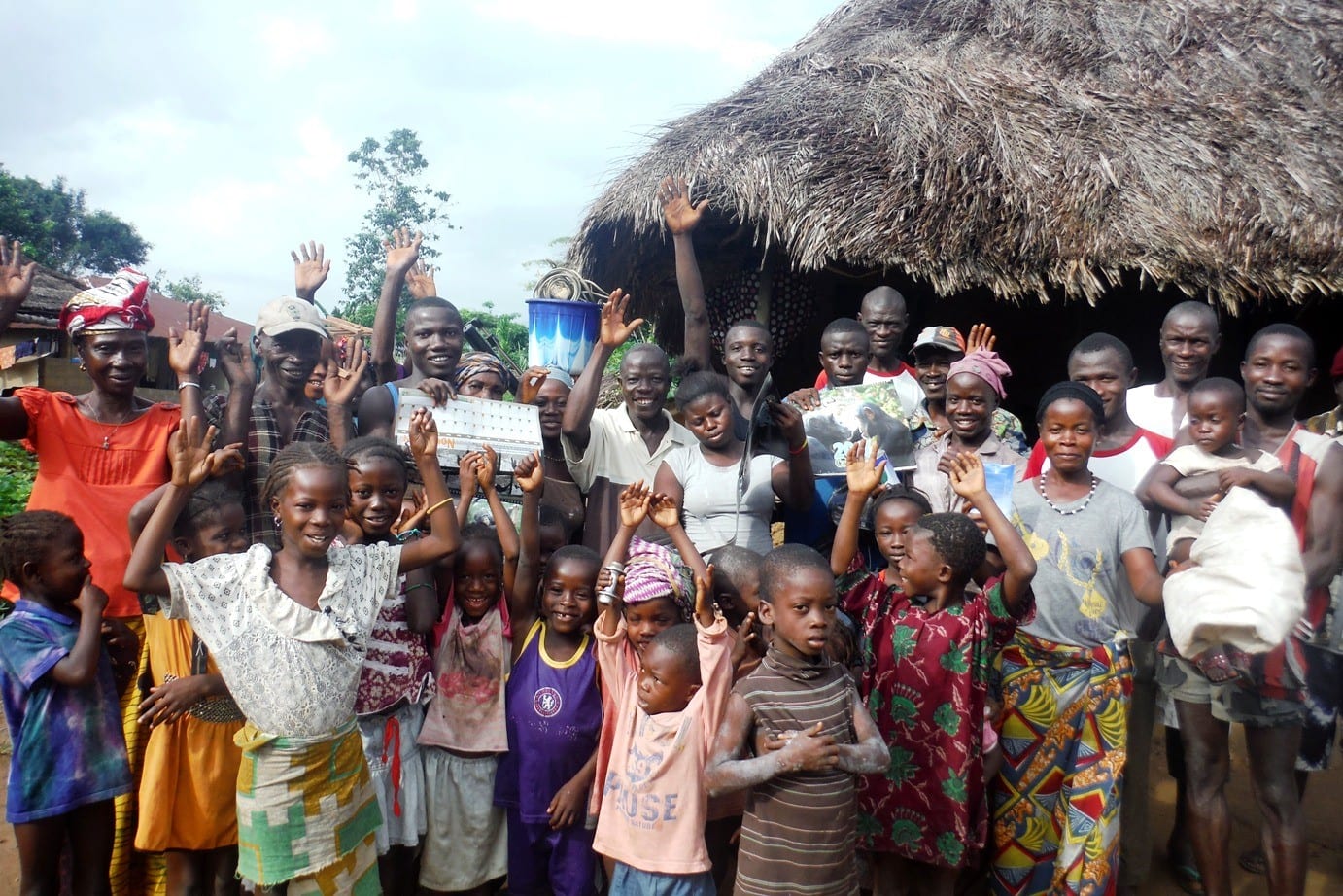Conservation in action
Conservation
Chimpanzee Conservation- Key Info
- What we’re doing
- What you can do
Conservation in action
Chimpanzee Conservation
Western chimpanzees are classified as Critically Endangered with an estimated 53,000 animals remaining in the wild. Since 2015, Dublin Zoo has been providing funding for Tacugama Chimpanzee Sanctuary Community Outreach Programme in Sierra Leone.
Donate Today
Chimpanzee Conservation
Western chimpanzees are classified as Critically Endangered with an estimated 53,000 animals remaining in the wild. Since 2015, Dublin Zoo has been providing funding for Tacugama Chimpanzee Sanctuary Community Outreach Programme in Sierra Leone.
Tacugama Chimpanzee Sanctuary
Western chimpanzees are found in West Africa and this subspecies is listed as Critically Endangered by the IUCN Red List. Since 2015, Dublin Zoo has been providing ongoing funding for Tacugama Chimpanzee Sanctuary – Community Outreach Programme in Sierra Leone. This initiative promotes community conservation and environmentally friendly farming; with 50% of chimpanzees in Sierra Leone living outside protected areas, this is a vital programme.
In 2017, Dublin Zoo increased funding to assist Tacugama Chimpanzee Sanctuary in helping victims of the mudslides in Freetown. In addition, in 2018, Dublin Zoo raised extra funds to assist Tacugama Chimpanzee Sanctuary to upgrade their quarantine facilities to accommodate the growing number of orphaned chimpanzees that have been rescued by the sanctuary.
Dublin Zoo also participates in the European Endangered Species Breeding Programme for chimpanzees.
Photos by @rowenagoesape
Chimp Learns New Skills at Tacugama
Chimps at Tacugama Wildlife Reserve
Outreach programme
A major loss of chimpanzee habitat in Sierra Leone is due to slash-and-burn agriculture, whereby the vegetation is cut down and burnt and creating land for farming. However, the soil on this land is poor and farmers need to slash and burn more forest after a few years. The Tacugama Community Outreach Programme is working with farmers to use permanent fields and build up soil health, thus reducing the need to destroy chimpanzee habitats. The programme is also encouraging farmers to return some farmland to the forest. In addition to this, it is arranging workshops with local communities to talk about chimpanzees, habitat protection, and how this affects their local community.
Participants in the outreach programme

